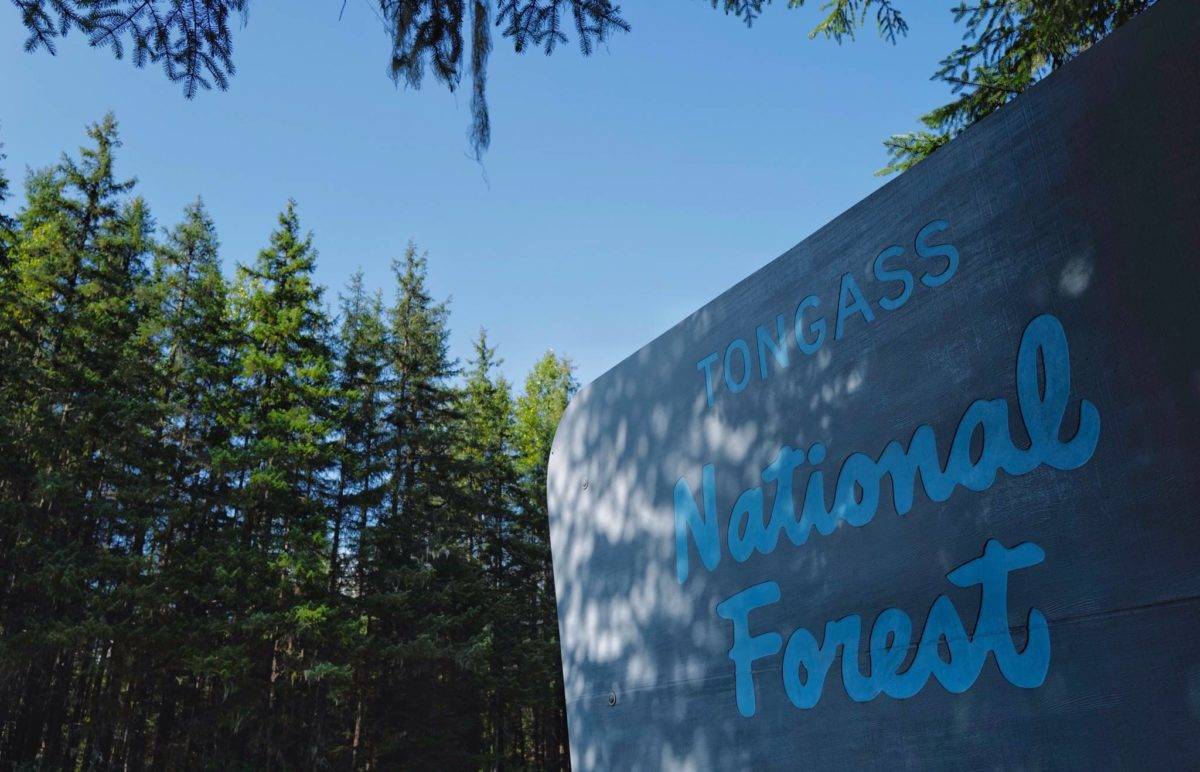By Rich Moniak
In October, the Trump administration issued a decision to fully exempt the Tongass National Forest from the Roadless Rule. Last week, the Biden Administration announced it’s considering whether to restore all or part of it. That prompted Sen. Lisa Murkowski to say it’s time “to end this yo-yo effect” which upends the lives of Southeast Alaskans “every time we have a new President.”
It’s an apt analogy. We’ve already gone from full implementation to full exception twice.
This would be an epic battle if the Roadless Rule restricted “tree harvest in more than half of the Tongass — about 9.4 million acres,” as reported by Alaska Public Media. But it’s really an argument over 1.8% of what the statement erroneously implies.
In Murkowski’s view, reimposing the Roadless Rule “will cost jobs, diminish income, keep energy prices high, and cripple the ability of the communities in the region to develop a sustainable, year-round economy.”
But what was remarkable about the Trump administration’s decision to exempt the Tongass is they didn’t increase the annual projected timber sale quantity of 46 million board feet. That objective was established by the 2016 Land and Resource Management Plan. The Forest Service signed off on it while the full Roadless Rule was in place.
The Trump administration also didn’t change the agency’s goal of transitioning to harvesting primarily young-growth forest.
What the exemption would provide is more old-growth acreage to choose from for future timber sales. According to the Environmental Impact Statement, that “could, in turn, improve the Forest Service’s ability to offer economic sales that meet the needs of industry.” And “communities influenced by the timber industry may experience minor beneficial effects resulting from flexibility for timber harvest.”
“Could” and “may” aren’t words associated with any kind of guarantee. And a “minor” addition to the 62 logging and sawmill jobs associated with Tongass timber harvest in 2018 falls far short of “rebuilding an entire industry, putting Alaskans back to work, and diversifying Alaska’s economy,” as Gov. Mike Dunleavy claimed the Trump administration’s decision would do.
Don’t go looking for job growth in the mining sector either. Because the EIS stated that exempting the Tongass from Roadless Rule wasn’t “expected to affect existing or future locatable mineral exploration or mining activities on the Forest.”
After the Biden administration changed course, Dunleavy tweeted he was “Disappointed in the latest suppression of AK economic opportunity” and divisively added “the federal government wishes to see Alaskans suffer at the lack of jobs and prosperity.”
The other side thinks Biden’s decision will save jobs. Sounding the familiar refrain of environmental advocacy groups, Austin Williams, the Alaska Legal and Policy Director for Trout Unlimited, called it “short-sighted” to exempt the Tongass from the Roadless Rule. “It’s long past time to end clear-cut logging of old-growth forest” he argued, because it “damages important critical fish and wildlife habitat, costs taxpayers many millions of dollars, undercuts tourism and fishing jobs, and hampers our ability to fight climate change.”
But he began his press release claiming the Roadless Rule exemption made “more than nine million acres of backcountry lands in the nation’s largest national forest vulnerable to industrial clear-cut logging of old-growth forest.”
That’s propaganda, not the “science-backed policy muscle” Trout Unlimited says it brings to the cause on “behalf of trout and salmon fisheries, healthy waters and vibrant communities.”
The facts are the Tongass only contains five million acres of productive old-growth forests. The vast majority can’t be logged. They’re located in Admiralty Island and Misty Fjords National Monuments, 17 other wildernesses areas, and a dozen LUD II areas “managed in a roadless state to retain their wildland character.” Hundreds of miles of rivers and streams vital to the region’s wild salmon wind their way through these protected lands.
And as identified in the EIS, fully exempting the Tongass from Roadless Rule would only add 168,000 acres old growth timber to the 227,000 acres that’s already available for future harvest.
I’m not dismissing the environmental risks associated with logging old growth in any part of the forest. But the Roadless Rule has become a fight over which wild exaggeration of the facts will prevail. Neither side should win. Which means it’s well past time they commit themselves to accepting a compromise.
• Rich Moniak is a Juneau resident and retired civil engineer with more than 25 years of experience working in the public sector. Columns, My Turns and Letters to the Editor represent the view of the author, not the view of the Juneau Empire. Have something to say? Here’s how to submit a My Turn or letter.

